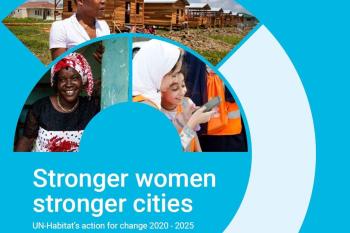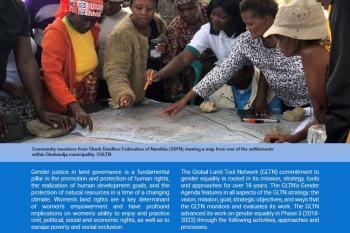
Read More
Stronger women stronger cities: UN-Habitat’s action for change 2020 – 2025
This publication presents a summary of UN-Habitat’s gender equality impact over the past five years, in line with the Beijing reporting cycle.

Despite the recognized importance of land rights for sustainable development, the land agenda has been overlooked in recent SDG reporting of governments. Official SDG reports and indicators used for land tenure security (SDG 1.4.2) have not accurately reflected the views and concerns of the rural poor who lack land access or have insecure tenure.
Through consultations, farmers, indigenous peoples, fisherfolk, rural women and CSOs in the Philippines have come to an understanding of what constitutes tenure security for them. Thus, appropriate indicators for land tenure security should include: documented legal rights; de facto possession of the land; the absence to threats to one’s tenure; access to sufficient support services and markets (in the case of those who rely on agriculture and related livelihoods); and, equal rights for women.

This publication presents a summary of UN-Habitat’s gender equality impact over the past five years, in line with the Beijing reporting cycle.

GLTN’s institutional commitment to gender equality and secure land rights for women and girls has been at the core of its work since inception in 2006.

This FIG Nepal CALL TO ACTION on Climate Responsible Land Governance and Disaster Resilience underscores the imperative for land professionals to act in a climate responsive way.